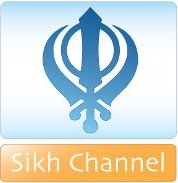
The channel said that the programme was “highlighting human rights abuses from recent years” and that “The Indian High Commission have been invited many times to our studio both formally and informally and have yet to participate in programming”.
The licensee added that the Sikh Channel operates “an open platform policy allowing all to participate and contribute to programming…As such we cannot shy away from difficult or distressing programming which is required in the interest of human rights and awareness”. In addition, TV Legal said that “extended invitations were made during the programming for participants with an alternative viewpoint” on the matters discussed during the programme.
Ofcom considered that the programme included a number of viewpoints, but all of them were: either critical of the Indian state’s policy in relation to its treatment to the Sikh community in India; or could be interpreted as arguing the case for an independent homeland for the Sikh community in India. For example, within the programme, the Indian Government was accused, variously, of committing “genocide” against the Sikh community; and imposing “one law for the majority and another law for the Sikh minority”. In addition, there were views expressed demanding a “homeland” for the Sikh community in India.
Ofcom considered that the programme did not contain any alternative views, which could be reasonably and adequately classed as supportive of, or which sought to explain: either the actions of the Indian State in relation to the Sikh community within India, and in particular, the Punjab; or the arguments against an independent homeland for the Sikh community within India.
Ofcom noted the channel’s submission that it operates “an open platform policy allowing all to participate and contribute to programming…As such we cannot shy away from difficult or distressing programming which is required in the interest of human rights and awareness”. It is important to note that the broadcasting of highly critical comments concerning the policies and actions of any state (such as happened here) is not, in itself, a breach of due impartiality. It is essential that current affairs programmes are able to explore and examine these issues and contributors are able to take robust and highly critical positions. However, depending on the specifics of the issue, it may be necessary, in order to fulfill the requirements of due impartiality as set out in the Act as well as the Code to ensure that alternative viewpoints are broadcast.
Furthermore, the channel was warned by Ofcom for not providing recordings of particular shows as requested by the media regulator.
Ofcom was concerned that: in the case of the specified programmes, it took three and a half months for the Licensee to provide the correct recordings; and that in the case of the 28 May, it took nearly four months for the Licensee to provide the correct recording.
In the event of any further breaches of Licence Conditions 11 and 12 being recorded in respect of licences held by TV Legal, either Sikh Channel or Brit Asia TV, Ofcom will proceed to consider further regulatory action, including consideration of the imposition of a statutory sanction.
